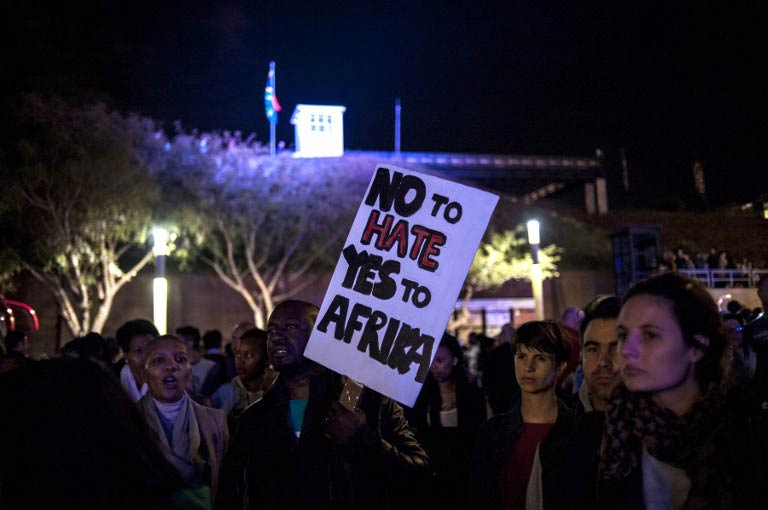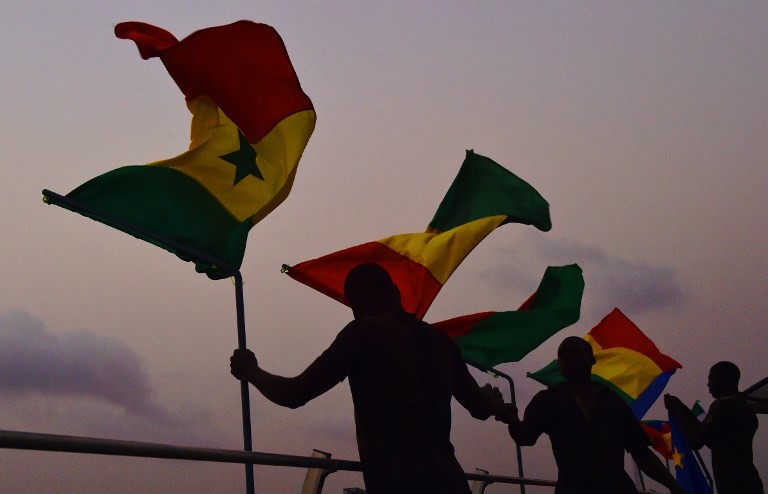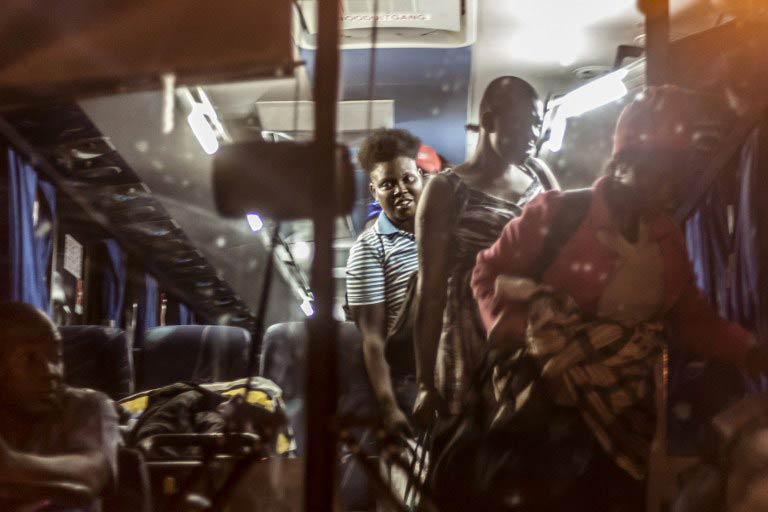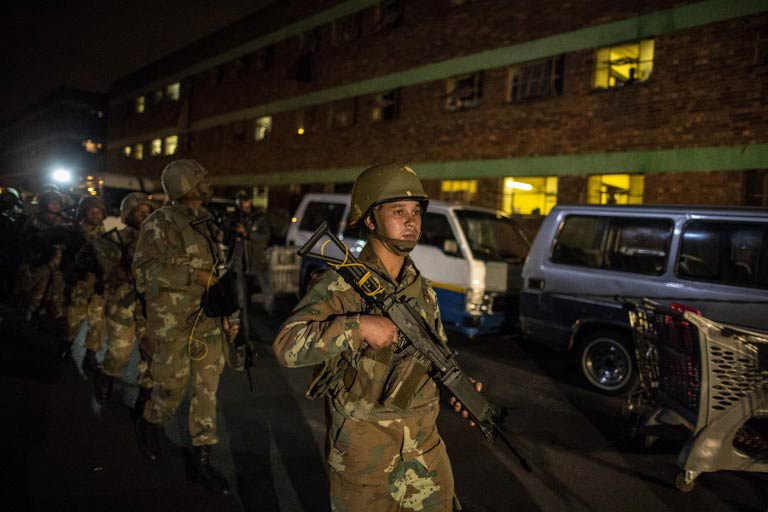
Much has been said already about the xenophobic attacks in South Africa and I fear falling into repetitiveness by merely echoing the sentiments others have already expressed. However, it is an issue close to my heart and I couldn’t completely exempt myself from this conversation.
I and fellow Africans stood united under the banner of “Je suis kwerekwere” and this highly influenced my philosophy of African unity. But instead of discussing South African discrimination, permit me to say a few words on the politics of African togetherness.
There is little co-operation between Africans and a lack of encouragement towards discovering ourselves and exploring, accepting and celebrating our diversity. I see Africans from various countries insisting on cultural individuality and lack of familiarity, sometimes with people from neighboring countries, reducing them to mere “foreigners”.
Due to South African influences, I have a certain agility in associating and communicating with southerners from Swaziland, Lesotho, Botswana and Namibia.
I can switch quickly from greetings in Oshiwambo to Sotho to Zulu. We can talk about pap and vleis and connect through food, music, customs, parlance, and many other components of culture that bring us together yet when I say we are one, denial is common. I am not from South Africa, Swaziland, Lesotho, Namibia or Botswana but I have learned the things these peoples have in common and I can co-exist with them through my understanding of who they are as a people.
In my circle I also have West Africans, and they too deny their proximity. Classic examples are Nigerians and Ghanaians. They too speak of extreme differences yet my knowledge of one catapulted me into the world of the other with swiftness.
I am not denying individuality or stating by any means that African culture is uniform or perpetuating the myth that Africa is a country. What I am saying is that Africans have many similarities they refuse to accept. And although our distinctiveness varies from region to region there is something about being African that connects us all.
I blissfully switch from “jambo” to “mbote” depending on who I am addressing, and my articulacy and ‘chameleon’ personality always leads to this one question: “Clênia, where are you from?”
I have learned a couple of things with this frequent question. One is how we expect each other to not know each other’s culture and how much we have pledged to our countries but have not pledged to our identity. I say this because if we really knew and understood roots, we would be able to identify fruits. Our diversity is expressed through various forms but if we know origins we can understand that fufu, funje and pap are essentially the same concept translated in different ways. This realisation will aid us towards engaging with each other and stop seeing ourselves as mere “others” because we are under different flags.
Xenophobia is not only a South African concern, it’s a general African problem because we all have prejudices against each other, are ignorant of each other’s struggles and existence, and threatened by one another more than we would like to admit.
Time and time again I see impenetrable nationalistic cliques that are derided by people from certain countries – yet these same people cry out “South Africa why?!”…The hypocrisy!
Don’t use the hatred and confusion others have as a scapegoat to justify the just-as-filthy sentiments you harbour.
The xenophobic attacks that occurred in South Africa last month are beyond shameful and it’s painful to see the loss of respect for human lives. I applaud the media and the citizens of the internet for keeping us informed. However, the dexterity and rapidity with which we personally spread calamity leads me to believe that tragedy is sadly met with normalcy. The appalling images of dead bodies were shared far and wide on the internet. I saw it with the Garissa attack and now I see it with xenophobic violence. Our inability to cringe over such shocking depictions of fellow human beings reveals a sad truth.
The protagonists behind these killings have no respect for life, and in our act of “keeping others aware” by spreading graphic depictions of atrocities, we are showing that we have no respect for death. That is just as deplorable because if we do not respect these deaths we are unfit to defend and fight for these lives. So excuse your “We are one” speech when you are quick to broadcast a picture of someone being burned alive.
The anti-xenophobia marches and attitude that manifested are a fine example of African resistance, something we often believe is non-existent when we consider pacified African citizens and governments. This time, we also saw a rare example of solidarity, a harmony that seems to be imaginary; mere ideology and theory.
Let’s face it, we are scattered! As nations we all have experiences unique to us – apartheid, ethnic cleansing etc. – that affect and influence our philosophies and policies, but for the sake of our future let’s begin to recognise and seek similarities. Familiarity will lead to some empathy; in this empathy we will find tolerance and tolerance will help us walk together in unity.
My sincere condolences to people who have lost loved ones and my support to the people living the struggle stories that are in obscurity.
Nkosi Sikelel’ iAfrika. God bless Africa.
Clenia Gigi is a a student, avid reader, poet, spoken-word artist, Pan-Africanist, feminist and eternally a child at the face of education.






